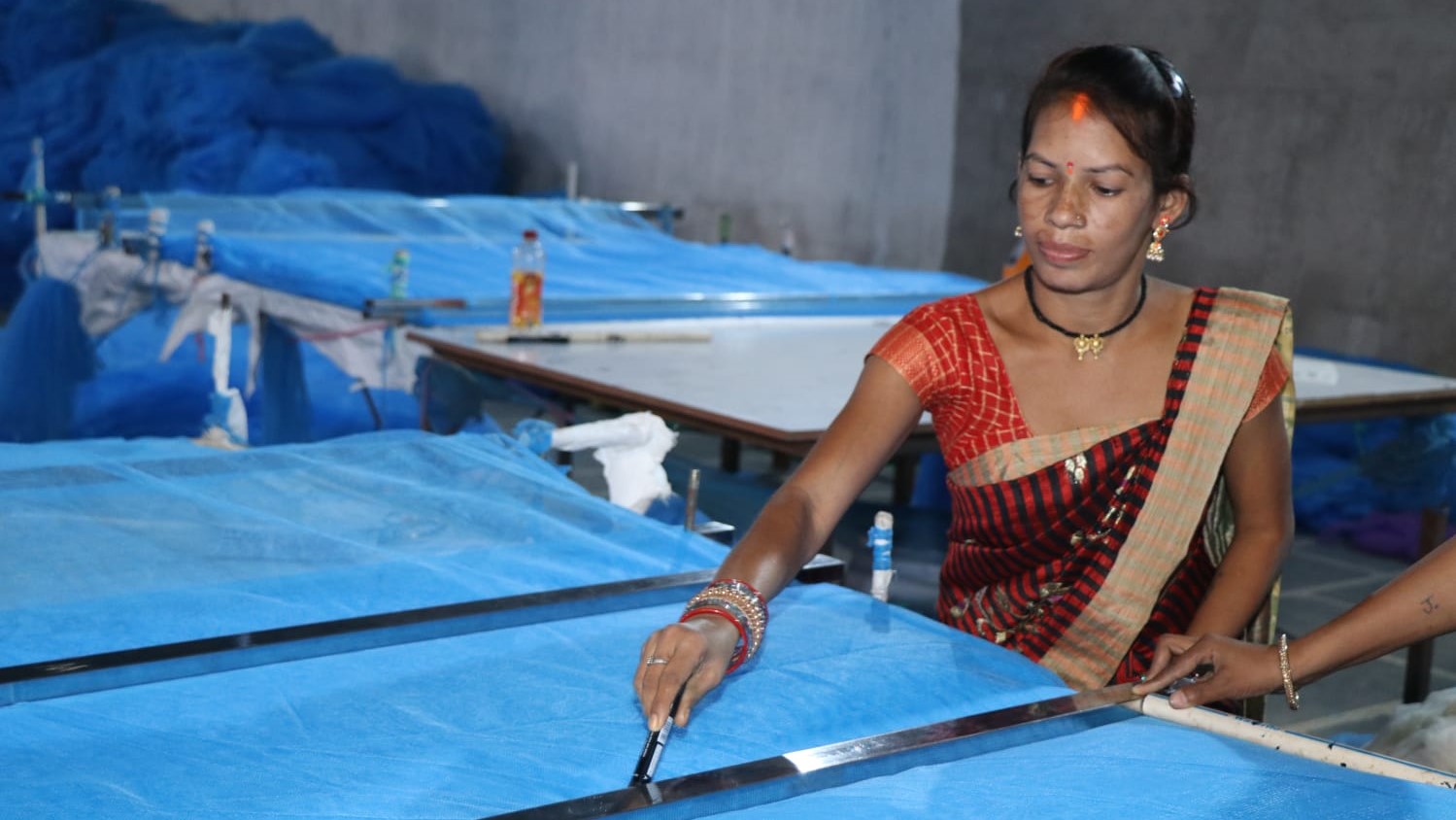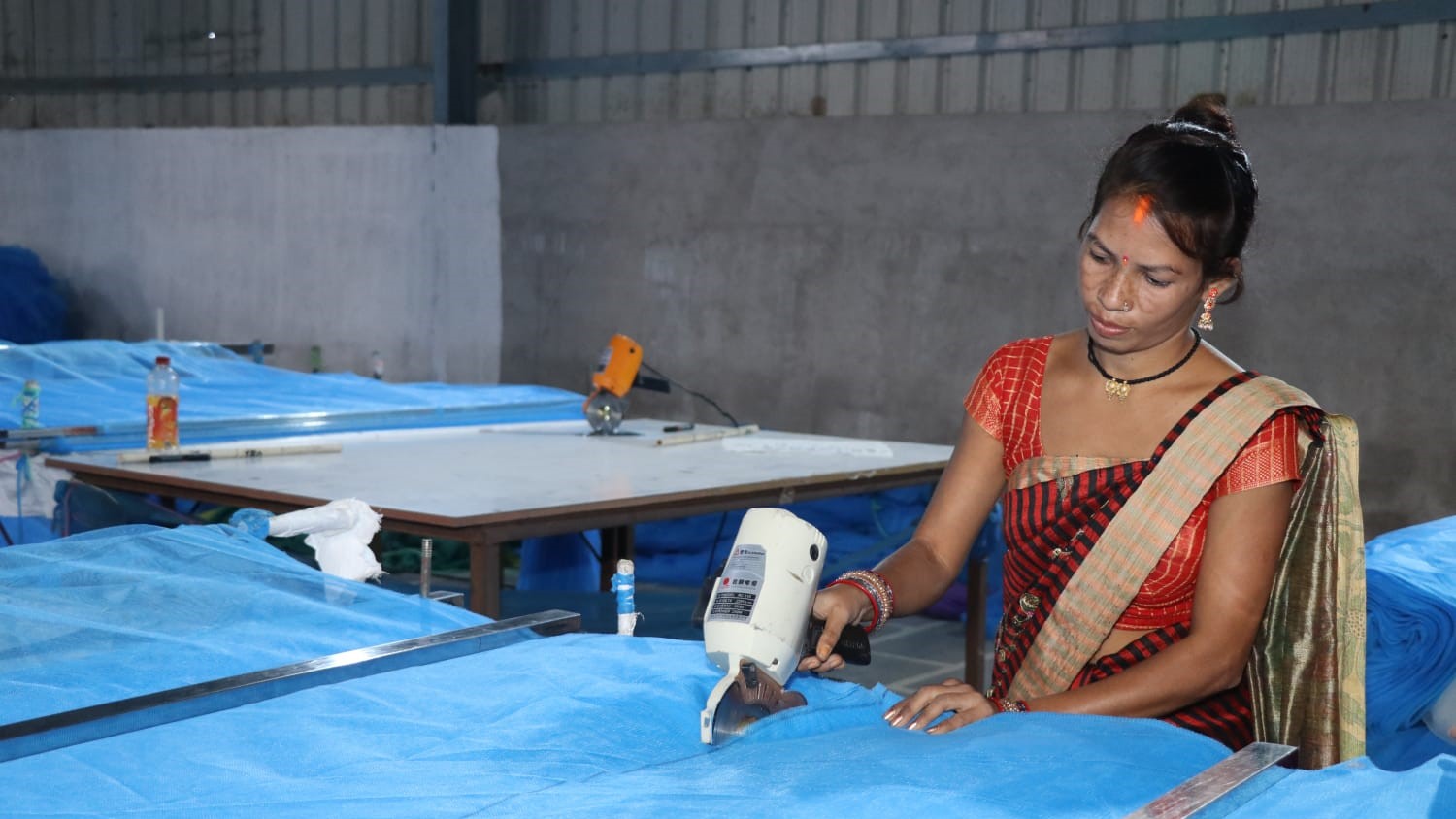

Green technology: fighting disease and creating jobs in India
08 April 2024 UNIDO

Anju Sahu leads a life intertwined with the rhythms of nature. Surrounded by lush landscapes, Sahu’s world, however, is filled with challenges ranging from poverty to deadly malaria and other vector-borne diseases like kala-azar, dengue, and chikungunya.
With 95% of the population residing in malaria-endemic areas, India has been combatting the spread of diseases using an insecticide: dichlorodiphenyltrichloroethane or “DDT”, which is effective and cheap, but at the same highly toxic for humans and the environment. Therefore, the Government of India signed the Stockholm Convention on Persistent Organic Pollutants (POPs) in May 2002 and ratified it on 13 January 2006 to gradually stop the production and use of DDT.
With the support of UNIDO, UNEP, and the Global Environment Facility (GEF), Indian research institutions jointly developed cost-effective and sustainable technologies to control mosquito menace – bio-botanical pesticides that are produced from neem trees, bacterial larvicide Bti, and Long-Lasting Insecticidal Nets (LLIN).

These technologies are produced at the HIL Limited factory where Sahu, a factory employee working on creating the LLIN, has personally reaped the benefits of this partnership saying: “The women's participation in UNIDO's DDT project has not only helped in our skill development but also increased our family's income, brought prosperity and self-reliance in the family."
UNIDO and the GEF have helped create an agroforestry model for large-scale growing of high-yield neem tree cultivars. This model not only generates raw materials for producing bio-botanical pesticides but also serves as a source of extra income for a significant rural population and farming communities.
Project name: Development and promotion of non-POPs alternative to DDT in India